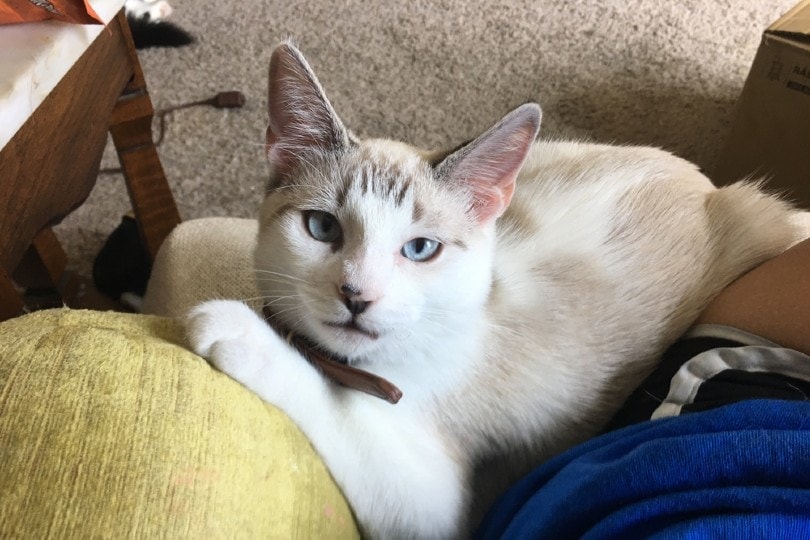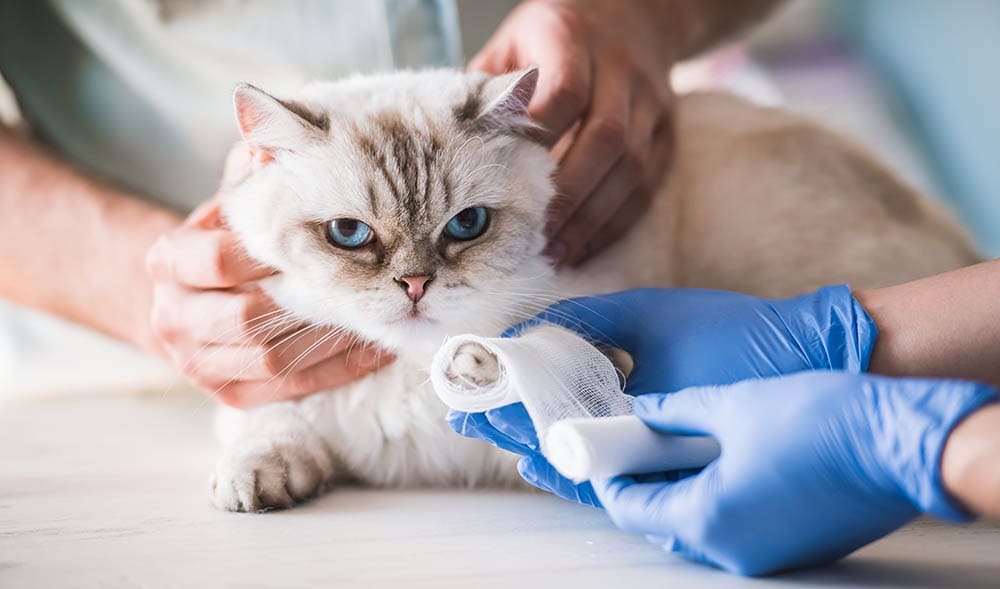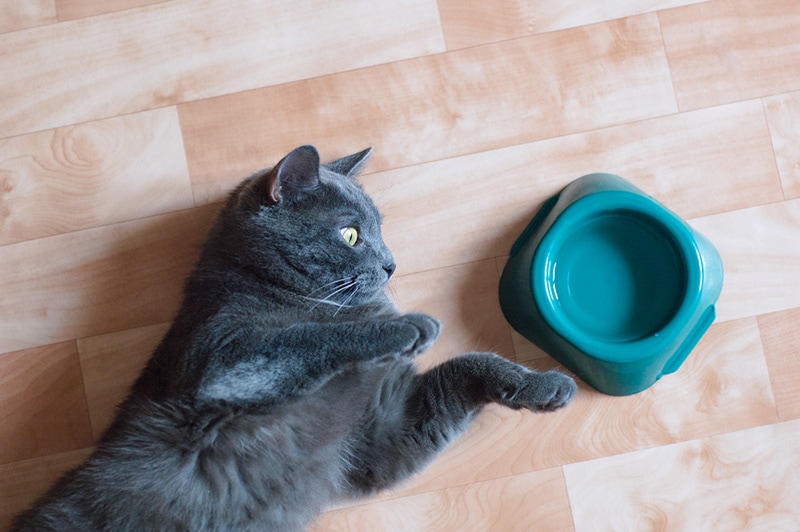Scaredy Cat: Meaning & Idiom Origins

Updated on

Cats are easily one of the most startled house pets in existence. Cats are frightened by the slightest things and will scamper to safety when the door bangs. It’s hard to blame these adorable creatures for their fearfulness, given their small size and less-than-muscular bulbs.
The phrase “scaredy cat” is a fitting name to describe these timorous felines, but it doesn’t sit well with most people when used as an idiom to describe them. The phrase “scaredy cat” is often jibed at someone timid or too scared to try something daring. But where does this phrase come from, and what does it really mean?
“Scaredy cat” traces its roots to the United States in the early 20th century. Its exact origin is a mystery, but today, we’ll explore plausible origin stories and what the phrase means.
What Does Scaredy Cat Mean?
Scaredy cat is a colloquialism mostly used by kids to describe someone who is always frightened in situations with little to no danger. The phrase compares the person to domestic cats that are easily frightened of strangers or commotion in their vicinity.
People reluctant to try new things may be called scaredy cats by their peers. The phrase is a staple with kids who use it to tease each other. Beyond the playfulness and frivolity, the phrase may sometimes have a slightly manipulative backdrop when one person uses it to get another to do what they want. The victim will usually end up doing the “daring” activity to prove them wrong.
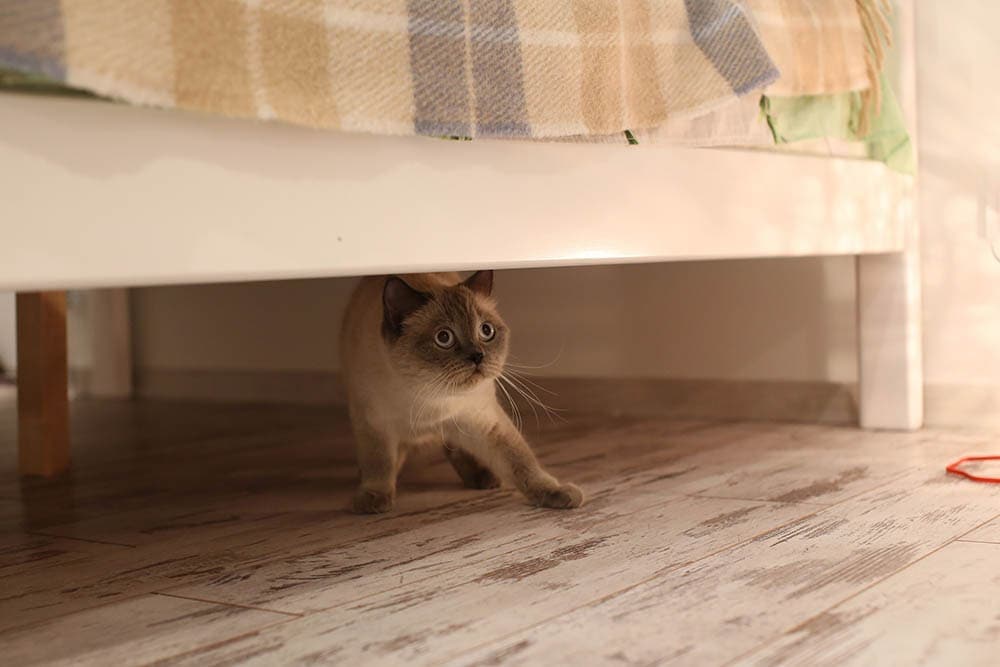
Where Did the Phrase Scaredy Cat First Appear in Print?
The phrase “scaredy cat” first appeared in print in Dorothy Parker’s “The Waltz”, a short story featured in her collection of short stories After Such Pleasures. This is generally accepted as the first instance of the term, and Mrs. Parker gets credit for coining the term.
It’s worth noting that “scaredy” isn’t an actual word in English but is “scared” with the suffix “y”. In fact, the phrase is likely an amalgamation of “fraidy cat”, which basically means the same thing. “Fraidy” is American slang first used in 1871 to describe a cowardly person or animal.1
Why Do Cats Scare So Easily?
Cats are extremely jumpy creatures, and while it’s acceptable to be scared of a balloon pop, cats are scared of their own shadows. But why are cats such…scaredy cats?
Well, domestic cats share a common ancestor, the North African/Southwest Asian wildcat. These cats live in the unforgiving wild, where they’re both predator and prey. Their survival depends on their ability to detect and respond quickly to potential predators and run away to safety.
What’s more, cats have heightened senses of sight, smell, hearing, and touch. This makes them extra sensitive to even the slightest movements and also makes them excellent hunters. They can quickly identify and sneak up on prey before pouncing and devouring them. Unfortunately, their acute senses work to their disadvantage in fight-or-flight situations.
Their ears will pick up the slightest sounds, and their eyesight will pick up subtle movements. Of course, the sounds and movement could always be something benign, but chase felines can’t take chances in such scenarios.

Telltale Signs Your Cat Is Scared
While cats are inherently fearful animals, cats that have experienced trauma often scare much more easily. Here are a few telltale signs to identify a scared cat (if it doesn’t run away).
- Flattened or twitching ears
- Dilated pupils
- Swishing or erratic tail movement
- Hissing and puffing up
- Ignoring the litter box and instead going outside for its business
- Hiding and crouching
These are obvious signs that your cat is fearful of something in the house. The good news is that there are plenty of ways to dampen your cat’s fears so they can be freer and happier around the house.
The 4 Tips for Making Your Cat Less Fearful
Some cats are so fearful that they spend little time at ease. If this sounds like yours, here are a couple of tips to keep them calmer.
1. Give Them Their Space
Cats are generally solitary creatures and prefer being alone. Giving them their own space to hide and relax allows them to acclimatize to their environment. Eventually, they’ll learn there’s nothing to be scared of outside their small, comfortable dens.
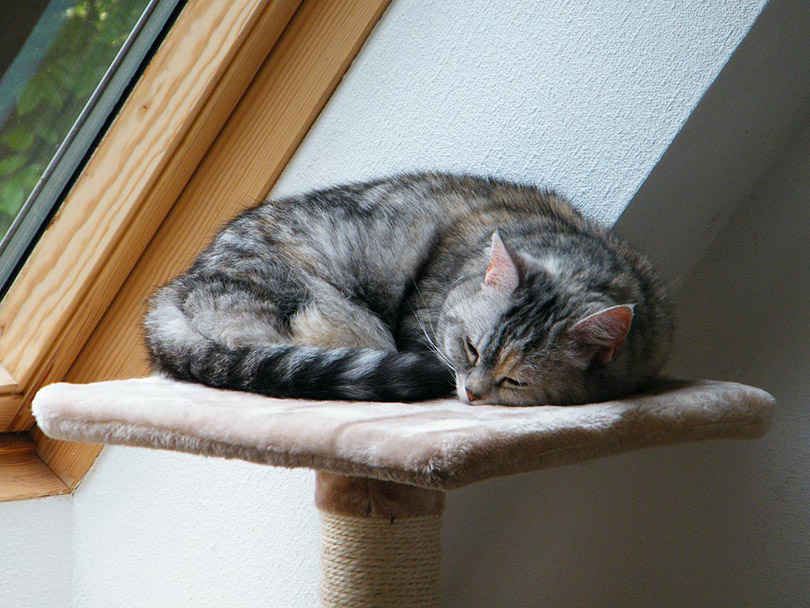
2. Reduce Stress and Fear Triggers
Remove anything inside your house that may scare your cat. If you can’t remove it, ensure it’s a fair distance from your cat. These may include objects like loud kitchen appliances such as blenders or machinery like drills. If you must use them, ensure your cat’s safe space is far removed from these loud and startling objects.
3. Play Soothing Music in the Cat’s Room
It’s almost impossible to escape the clamor of urban living, but while you can handle the cacophony, it’s a nightmare for your cat because of its sensitive hearing. If that’s the case, consider playing soothing music to dampen frightening noises. A soft symphony is excellent, but anything calming will do.

4. Stay Calm Around the House
Cats are very observant and often pick up their owners’ stress cues. When they do, they also become anxious, stressed, and easily frightened. As such, it’s crucial to stay calm around the house to dispel any fears in your cats.
If you adopt a new kitten, avoid sudden movements, and try to be as quiet as possible. You only have to do this for a few weeks until your cat gets used to the usual frenzy of your household.
Final Thoughts
Although the origins of the term “scaredy cat” remain a mystery, we can credit Dorothy Parker for putting the phrase on paper. Cats are reclusive and easily frightened creatures, so be gentle with any felines you stumble upon.
If your cat is overly scared, it may have been traumatized by a past event. Consider seeking an animal behaviorist’s help to reverse the trauma and bring out the happy, playful feline in your cat. Unfortunately, human scaredy cats have to face their fears.
Featured Image Credit: You are free to use this image but we do require you to link back to Hepper.com for credit

